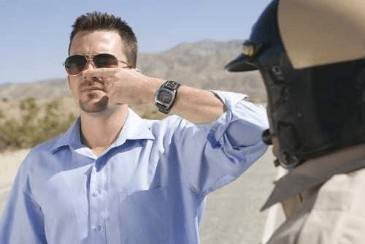Field Sobriety Testing
Want to learn about field sobriety testing? Watch this video to learn what you need to know. Then call our San Antonio DWI Lawyer for a free consultation.Question: What types of field sobriety tests are administered in Texas?
Answer:
In Texas, multiple field sobriety tests can be given by the officer. It’s up to the officer to decide what field sobriety test will be given. However, if an officer is well-trained, he knows what he’s doing. If he is a DWI task force officer, he’ll perform just three tests. One is the HGN; that’s a horizontal gaze nystagmus. The horizontal gaze nystagmus basically means the officer takes a pen, he moves it in front of your face, asks you to follow it with your eyes, and if your eyes make any jerky motion, you fail that test. There are many of causes of HGN. If you’re tired, if you’ve taken some cold medicine, if you’ve had a prior head injury, all those things can cause you to fail the HGN. If you fail the HGN, he’s probably going to arrest you, even if you did the other tests perfectly.
 One of the other tests they give is a nine-step walk-and-turn. The nine-step walk-and-turn is where you touch heel-to-toe, turn around and come back, and touch heel-to-toe counting nine steps, but there are also other parts of that test that the officer is looking at, and he doesn’t tell you that he’s grading you on these other things. One of the things he does is he tells you to stand heel-to-toe while giving you the instructions. So he gets you to stand in a heel-to-toe position and he goes through a long description of the test. Because it’s uncomfortable, and it doesn’t feel natural, a lot of people then switch to stand with their feet shoulder-width apart; you’ve just failed the test according to the officer.
One of the other tests they give is a nine-step walk-and-turn. The nine-step walk-and-turn is where you touch heel-to-toe, turn around and come back, and touch heel-to-toe counting nine steps, but there are also other parts of that test that the officer is looking at, and he doesn’t tell you that he’s grading you on these other things. One of the things he does is he tells you to stand heel-to-toe while giving you the instructions. So he gets you to stand in a heel-to-toe position and he goes through a long description of the test. Because it’s uncomfortable, and it doesn’t feel natural, a lot of people then switch to stand with their feet shoulder-width apart; you’ve just failed the test according to the officer.
Were you or a loved one arrested for drunk driving and have questions about field sobriety testing? Contact a San Antonio DWI attorney at Rush & Gransee today for a consultation on your case and all of your potential defenses. Let our experience work for you. Attorney Kurt W. Gransee has achieved the highest rating of superb on Avvo. Read Our FREE DWI Guide